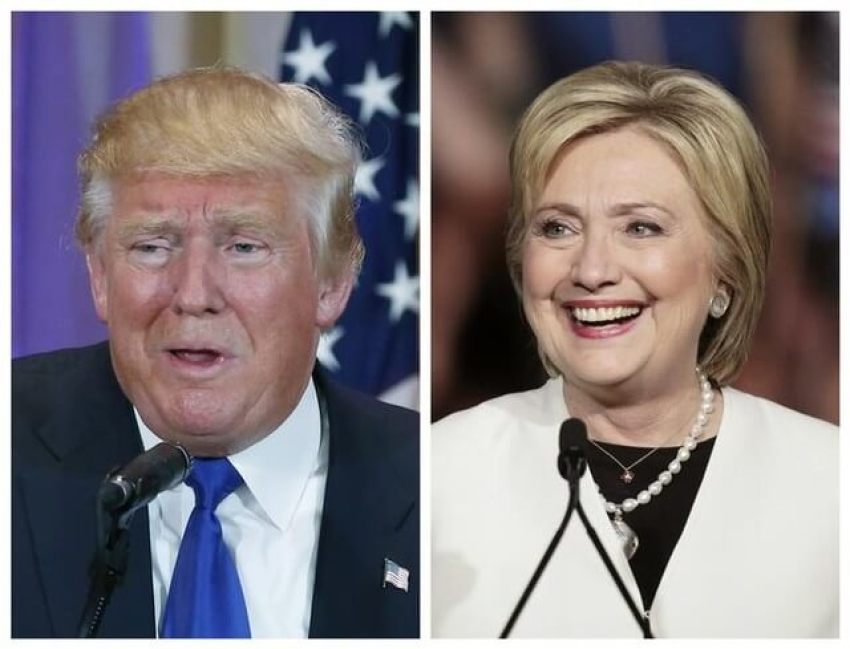3 Economic Myths Spoken by Presidential Candidates of Both Parties

As in most election cycles, this year's candidates have been hawking their plans to increase the prosperity of the American public. But, when these policies are looked at closely many of them turn out to be nothing more than myths.
The Christian Post spoke with four economists, two conservatives and two liberals, to find out what mythical economic lessons were proffered by presidential candidates this election season.
Here is what they told us:
Myth #1: Reducing international trade helps economic growth.
Jay Richards, an economist at The Catholic University of America and executive editor of The Stream, said the biggest economic myth of this election cycle is the idea there is always a winner and a loser in trading relationships.
Donald Trump, Bernie Sanders and sometimes Hillary Clinton have talked about international trade as harmful, implying that when we give our money or goods to another country we do not get something we value equally in return.
Richards compared this to saying your local grocer is harming you by selling you groceries.
"This is one of the basic laws of economics," Richards said, "the mutual benefits of trade … but it cannot find its way into the rhetoric of politicians and the understanding of a large population."
For example, the United States trades with China, he explained, because they have different skills and specialties then we do. In exchange for giving up their trinkets or iPhones they receive our paper money that they will probably use to invest in the United States.
Trump is proposing installing high tariffs, or taxes on goods imported into our country, as a defense against the encroachments of Chinese trade. The negative effects of this could be tremendous, Richards explained. Many of our consumer goods come from China and the prices on these would skyrocket. The thousands of jobs connected to Chinese trade would probably disappear. It also would probably provoke a trade war with developing nations, making it harder to find a market for our goods.
But, even then people might not realize what is happening, Richards said, leading to more unfeasible policy proposals to fix the new problems caused by the Trump's proposed tariff: "He doesn't seem to understand basic economics … it would do nothing good and would probably harm the lower income people who are advocating for it."
"Lots of people simply haven't taken the time to think about basic economics, so they fall for these kinds of things," he added.
Myth #2: Raising the minimum wage helps poor people.
Angela Rachidi, a research fellow in poverty studies from the conservative American Enterprise Institute, is concerned voters will support candidates like Hillary Clinton, Bernie Sanders or (more recently) Donald Trump, who are advocating for increasing the minimum wage.
Support for the policy is popular among those who hope to help the poor. They don't realize the data suggests it would do the exact opposite.
"You can ask anybody, me included, 'Can you live off $7.25 an hour?' and people are going to say no," Rachidi said, "Candidates bring this up appealing to a certain electorate who feel that wages are not high enough."
What these voters don't realize is that many of those earning minimum wage are often not poor families, but part-time workers, students or first-time workers in households with higher earners.
Instead of helping the poor families, raising the minimum wage will probably cost them jobs, Rachidi said.
If the government enforces a $15 an hour minimum wage a business has two options: cut costs or hike up prices. The easiest option is to fire a student or first-time worker to support the higher wages for the others. Changing the federal minimum wage, Rachidi pointed out, would spread this effect across the national economy.
Myth #3: If you cut taxes AND cut spending you can balance the budget.
Mike Konczal, a fellow with the left-leaning Roosevelt Institute, said the biggest myth he has seen in this election cycle is the idea that cutting taxes for the rich and cutting government spending will balance the budget.
"I think that is pretty equivocally wrong," Konczal said.
The numbers do not add up in Marco Rubio and Trump's plans to balance the budget because you can't cut enough government spending to compensate for the loss in revenue from cutting taxes to the rich. The result overall, he said, would be a huge transfer of wealth from the poor to the upper classes, because the poor would lose income support from government programs.
The voters still believe it, Konczal said because they cannot understand that the numbers for this argument will not add up: "How the government will balance the budget is an abstract question … They don't understand it in an accountancy sense."
Hunter Blair, from the left-leaning Economic Policy Institute, agreed. His biggest myth of this cycle was: "the idea that Trump's tax plan is anything but an enormous give-away to the wealthy."
Trump has claimed he will increase taxes on the upper classes but Blair doesn't believe it. He claims a closer examination of his tax plan reveals the usual Republican formula of cutting taxes on the wealthy because it creates growth.
This may have worked for Republicans forty years ago, but the evidence shows that the Bush tax cuts did not prevent the economic crash of 2008.
"It is something they have been saying for decades and they can't get themselves out of," he argued.



























